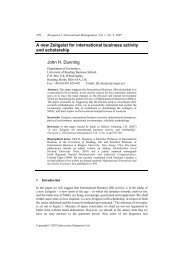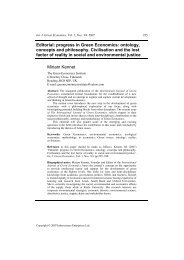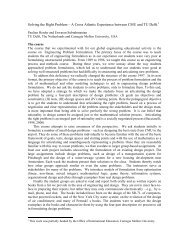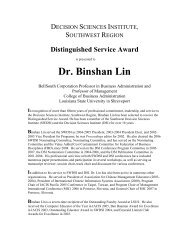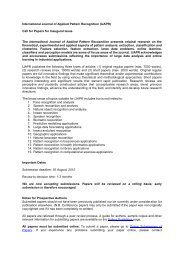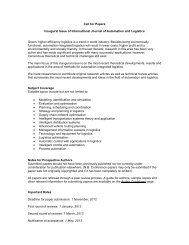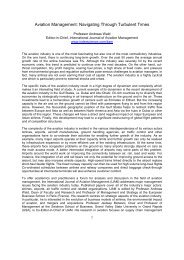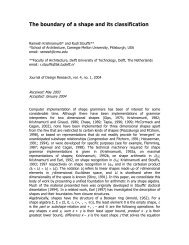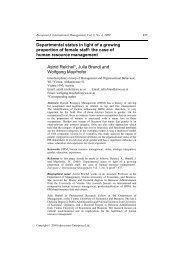Emotional Labour and Organisations: A Developing Field Ruth ...
Emotional Labour and Organisations: A Developing Field Ruth ...
Emotional Labour and Organisations: A Developing Field Ruth ...
You also want an ePaper? Increase the reach of your titles
YUMPU automatically turns print PDFs into web optimized ePapers that Google loves.
expressing sympathy or giving comfort are difficult to write <strong>and</strong> impose while<br />
scripted encounters may be easy to ‘see through’, especially in the context of nonst<strong>and</strong>ard<br />
encounters or enquiries. Attempts to bureaucratically control emotional<br />
labour for example by imposing limits on the length of specific encounters, can lead<br />
to contradictory pressures as workers manage the conflict between the dem<strong>and</strong>s of the<br />
organisation <strong>and</strong> of their ‘clientele’. A fuller underst<strong>and</strong>ing of the function <strong>and</strong><br />
enactment of ‘feeling rules’, of the different types of acting required for authentic<br />
emotion work production in terms of managing the emotions of self <strong>and</strong> of others, <strong>and</strong><br />
the ways in which emotional labourers manage the potential conflict referred to above<br />
is necessary to appreciate the processes underlying emotional labour <strong>and</strong> emotion<br />
work performance.<br />
Commodification<br />
One critical aspect of research into emotional labour has focused on issues around<br />
alienation <strong>and</strong> subjugation. Theorising in this area has tended to rely on images of an<br />
authentic self, that capital subverts <strong>and</strong> then moulds in its own image. However, the<br />
frequent ‘sanctification’ of emotional labour <strong>and</strong> assumed preciousness of such work<br />
may not fully reflect the meanings ascribed to it by emotional labourers themselves or<br />
by recipients of such work - both of whom may prioritise a more instrumental<br />
approach. Similarly, the terms <strong>and</strong> assumptions on which emotional labour is bought<br />
<strong>and</strong> sold as well as the expectations <strong>and</strong> experiences of employees may variously<br />
support or refute the notion of emotional labour as an example of exploitation <strong>and</strong><br />
control. The implications of commodification for the interface between employee,<br />
‘end user’ <strong>and</strong> organisation is a further area of inquiry which can throw light on some<br />
of the moral <strong>and</strong> ethical considerations around such work.




